
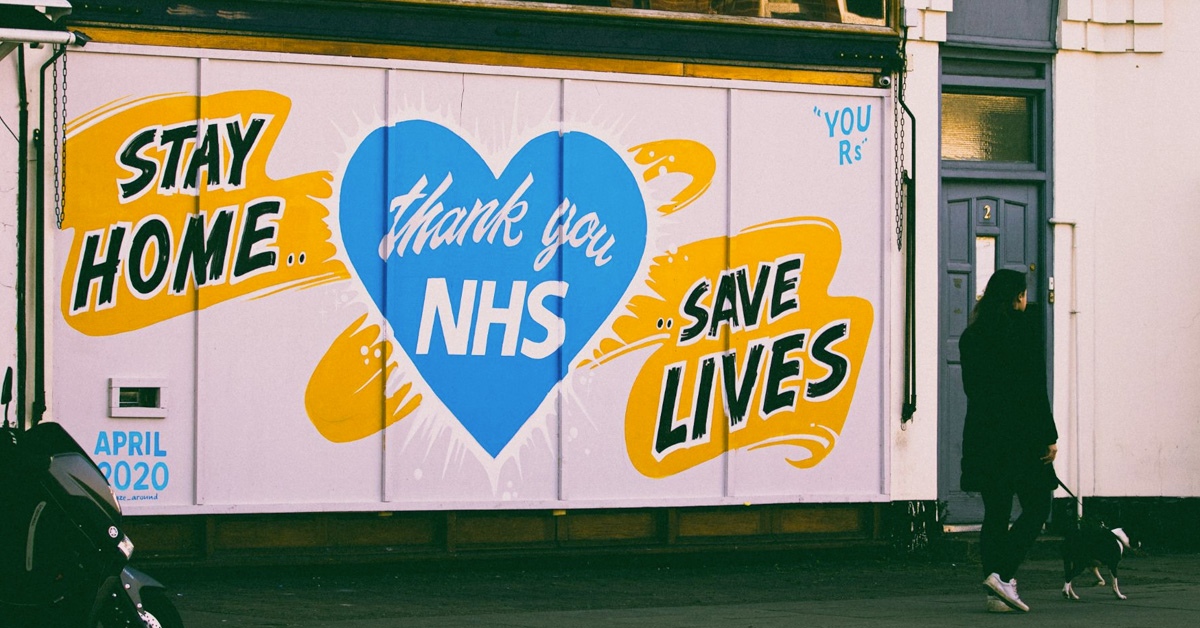
Why? Because the way some brands have responded to coronavirus makes them look untrustworthy.
But smart and, more importantly, genuine brands aren’t getting flustered. Instead, they’re sticking to tried-and-tested principles to guide them through.
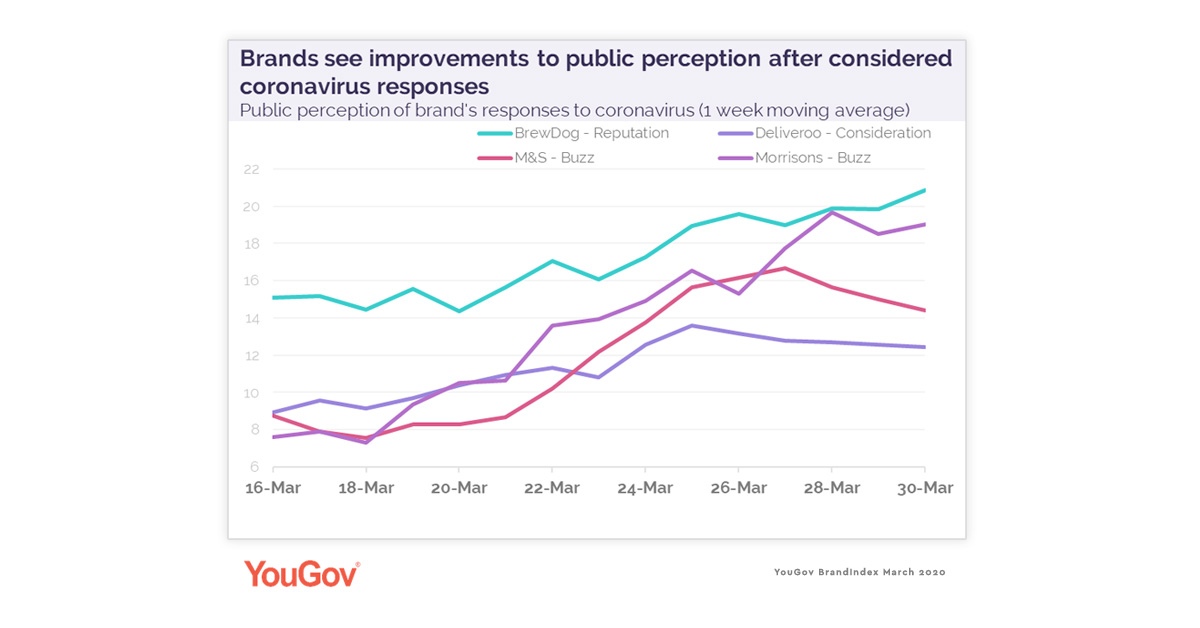
Some brands have stepped up during the COVID-19 outbreak
From Brewdog producing hand sanitiser to local property providers giving NHS staff free accommodation, brands - large and small - have been putting people over profit.
But this isn’t the case everywhere.
In fact, there’ve been some pretty high profile failures too (we’re looking at you Sports Direct and Wetherspoons). This highlights the sheer gulf between those who are getting their short-term responses right - and those that aren’t.
Essentially, we’re all in uncharted waters right now. So how important is it to get your communications spot on? Do brands have fair grounds to be nervous?
Not if they’re trying to do the right thing.
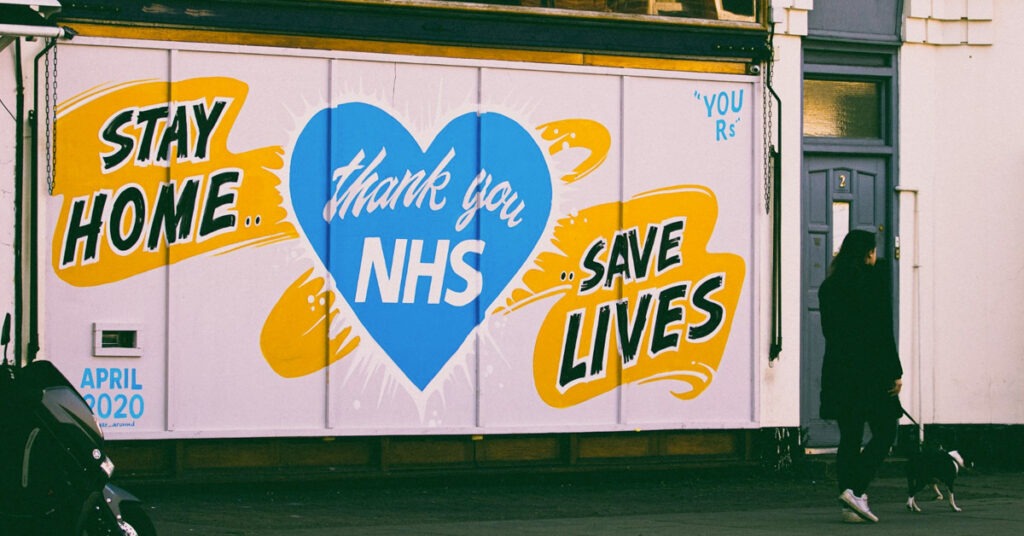
Brands should put people first (and not just in a pandemic)
Data from YouGov suggests that, in the short term at least, brands which put people first have surged in popularity.
And those that didn’t? Well, they’ve had a significant drop in reputation.
OK that’s pretty unsurprising, right?
Yes and no.
Recent history is full of examples of damaged reputations caused by scandal or misjudged brand campaigns (see Pepsi or Volkswagen). However, the unprecedented nature of this situation - not to mention the intensity of news reporting - is putting brands under the spotlight more than ever before.

The risk to long-term brand trust
According to Edelman, publisher of the global Trust Barometer survey, this is a critical issue.
In their COVID-19 study, which surveyed 12,000 people, a hefty 71% agreed that 'placing profits before people would lose their trust forever'. Many others agreed that a brand’s response would have a huge impact on their buying behaviour in future.
Essentially, brands that have piggybacked off of the pandemic have a right to be nervous.
However, it’s not all bad news. 37% said they’d already switched to a brand because of an innovative response. Trying to do something different that actually helps in this crisis? Consequently, it could have seriously positive implications for your brand.
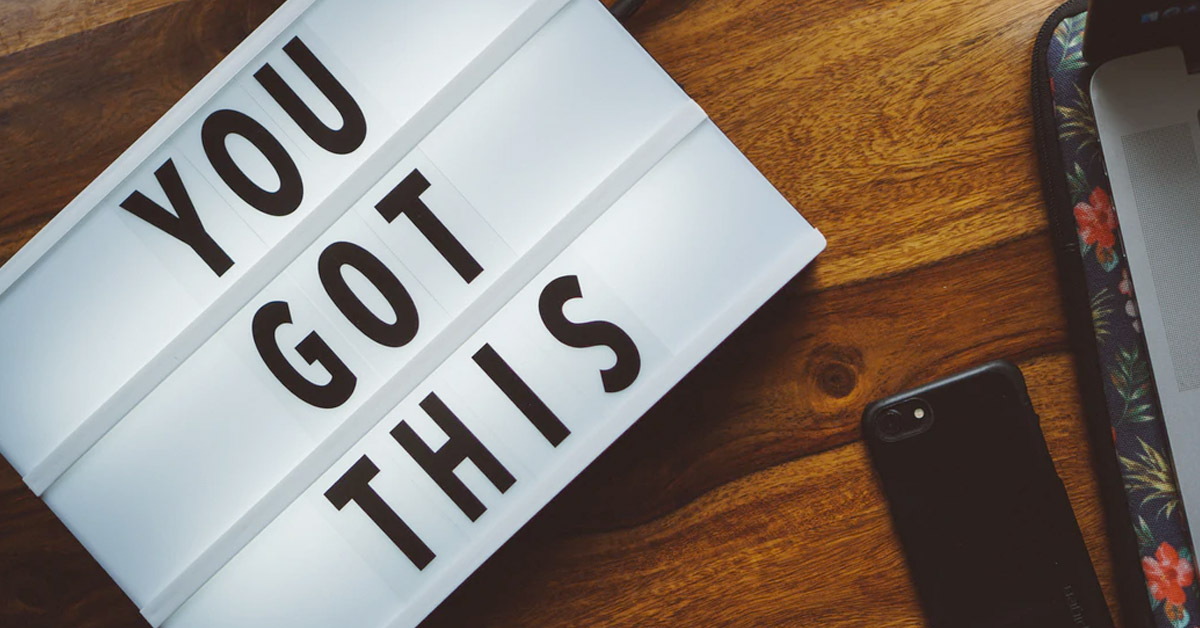
How do smart brands keep the trust of their customers?
Marketers have long craved for consumers to love their brands. They want to feel friendly and human or, at least, appear to be.
And over recent years, people have become sceptical. They often - and rightfully - see them as faceless organisations. Worse still, they feel like brands simply don’t care about, or try to understand, the very people they’re trying to sell to.
It’s an age-old battle between doing good and wanting to look like you are. Many advertising institutions have weighed in on this.
“Brand trust is one of the most valuable intangible assets in business. But in the commercial environment trust can be elusive and brands must work to build and maintain it. To do this brands must be reliable, responsible and deliver on their promises,” said WARC.
Other studies have shown that trust, rather than being purely about societal issues, originates from product and service concerns. These include quality of service, reliability of products and clear communications.
In fact, it looks like consumer trust is heavily influenced by a brand’s predictability.
Genuine brands get this.
They nurture consumer trust with a consistent and clear strategy. What’s more, they implement it over a long period of time.
And what happens when brands do things that are inconsistent with their personality?
They just come across as inauthentic and insincere.
That’s why, even in the face of uncertainty, smart brands will let their strategy steer their actions; whether that’s an altruistic act or a longer-term brand building campaign.

Being present in the moment vs. planning ahead
The short-term is easy. Don’t panic and throw away your overarching vision; stay strategic. But, above all else, be authentic and human - don’t just look like you are.
Truly connect with the emotional worries of your staff and customers - it’s paramount.
If you haven’t already, review your infrastructure, products and services. Ask yourself how your brand can genuinely help. Essentially, people are concerned about a few key areas at the moment. So if you can actually help their health, economic situation or simply entertain them during lockdown, you should.
But remember, when deciding on short-term responses, it’s important to stay consistent with your brand personality and positioning.
Just be yourself.
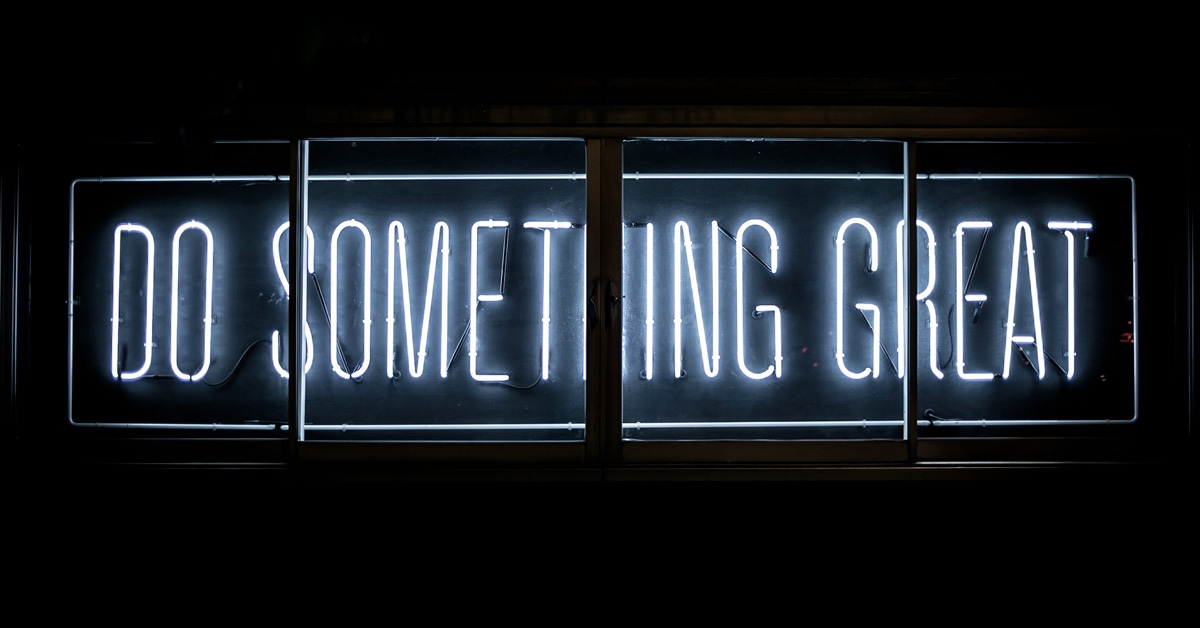
OK, longer term planning is a bit more complicated.
They might claim to, but nobody knows how long this will last - or what the future looks like. And different businesses have found themselves impacted in completely different ways.
Counterintuitive as it seems, it’s vital to ringfence time for strategic thinking.
But what does that mean now?
Review your existing strategy for COVID-19 impact. There’s a need to plan for multiple different scenarios; this will give you a foundation to work from.
Ask yourself questions like:
What’s going on in your category?
How could customer buying behaviours be changing?
Does your brand positioning still add value?
At this point in time, your understanding of the marketplace, competitive landscape, target customers and brand positioning is more valuable than ever.
Supplement this with real data from your website and social channels. And through this human insight, you’ll find the ideas that truly resonate.
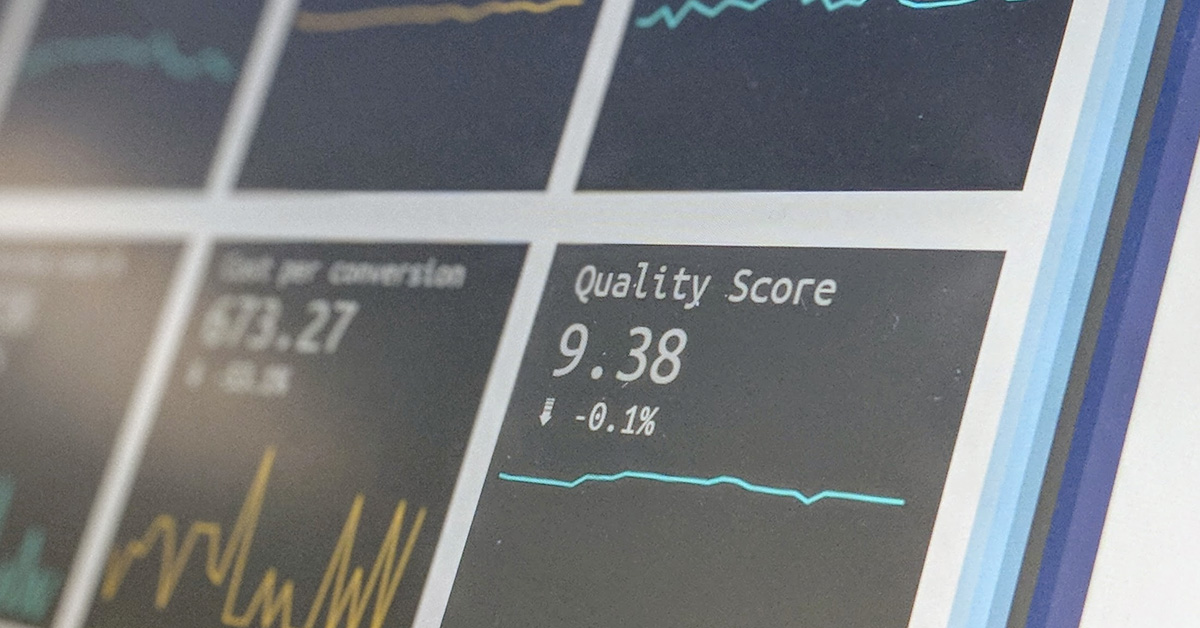
Finally, keep monitoring the situation for signs of improvement. As the immediate short-term health crisis subsides, there will be widespread appetite to get things moving again. Smart brands that go back-to-basics will not only maintain trust, they’ll set themselves up to emerge stronger.
---
Looking for some more help or advice? Get in touch.



If you want to showcase your offering, convert more leads, provide resources, or all of the above, we can build a website that separates you from the competition.



